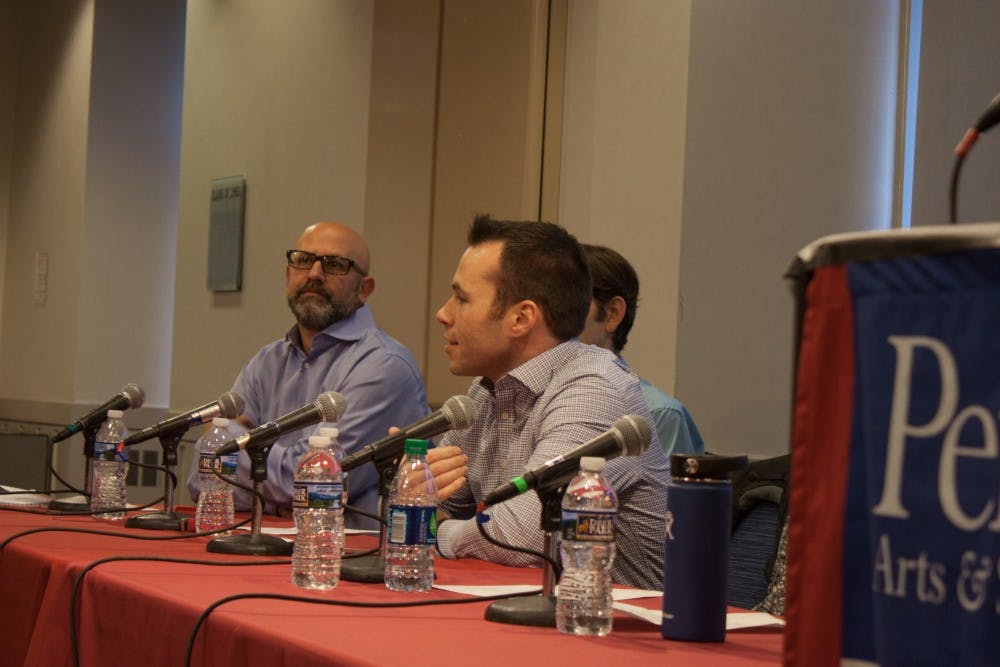
In the event held in Claudia Cohen Hall on Feb. 14, Penn political science professors discussed issues ranging from Americans’ impressions of Trump to the many implications of his policies.
Credit: Kasra KoushanThe School of Arts and Sciences held a roundtable featuring Political Science Department faculty members to examine the challenges that face the Trump administration as it enters its second year.
In the event held in Claudia Cohen Hall on Feb. 14, Penn political science professors discussed issues ranging from Americans’ impressions of Trump to the many implications of his policies. Professors Ryan Brutger, Guy Grossman, Matthew Levendusky, Dawn Teele, and Alex Weisiger spoke as panel members.
To provide a diverse range of perspectives, each panel member had a different expertise in the field of political science, ranging from domestic policies to foreign policy and developing countries.
One topic the panel members discussed was Trump's decision to invest vast funds into national defense.
Since women and women of color comprise most of the service and healthcare industries that would otherwise receive these funds, the panel discussed whether Trump's administration is affecting efforts towards gender equality.
“Toward the end of the previous administration, women’s rights and equality for all was a thin glass ceiling that we were about to shatter," Teele said. However, Trump's communication style, particularly his "locker-room talk," sparked a nationwide movement to promote women's issues.
“The Women’s March that followed Trump’s election was the largest protest in American history," Teele added.
Penn political science professor Ryan Brutger.
One panelist pointed out that the decision to increase funding for national defense is not exclusively a Trump decision.
Trump "does show some consistency in terms of adhering to traditionally Republican agendas," Weisiger said. "Had Rubio or Cruz taken the Oval Office, similar policies would have been implemented."
Panelists and attendees further discussed the United States’ participation on the international stage.
“Further strengthening national defense also raises the question of whether the expenditures associated with maintaining liberal world order are worth it," Weisiger said.
The panelists and attendees discussed which nations, if any, may take more control over international affairs if the United States is becoming increasingly isolationist under the Trump administration.
“There doesn’t have to be someone who steps into this role. If you think about it, is China, or anyone, really interested in taking care of affairs in the Middle East? Even if the U.S. does not continue its leading role in the world, international organizations can always step up and take charge,” Weisiger replied.
This roundtable is part of SAS's Knowledge by the Slice series, which regularly offers pizza and educational talks hosted by faculty and experts.
College junior Brian Doyle attended the lunch and said he thought that the discussion lacked the acknowledgment of Trump's business affiliations.
“Trump hasn’t divested from any of his businesses," Doyle said. "The Trump organization has many branches throughout the world and the consequences this has for foreign policy is his violation of the Emoluments Clause, a problem rarely brought up, maybe because it has been overshadowed by his alleged ties with Russia, an issue that is honestly more appealing to the public."
The Daily Pennsylvanian is an independent, student-run newspaper. Please consider making a donation to support the coverage that shapes the University. Your generosity ensures a future of strong journalism at Penn.
Donate




